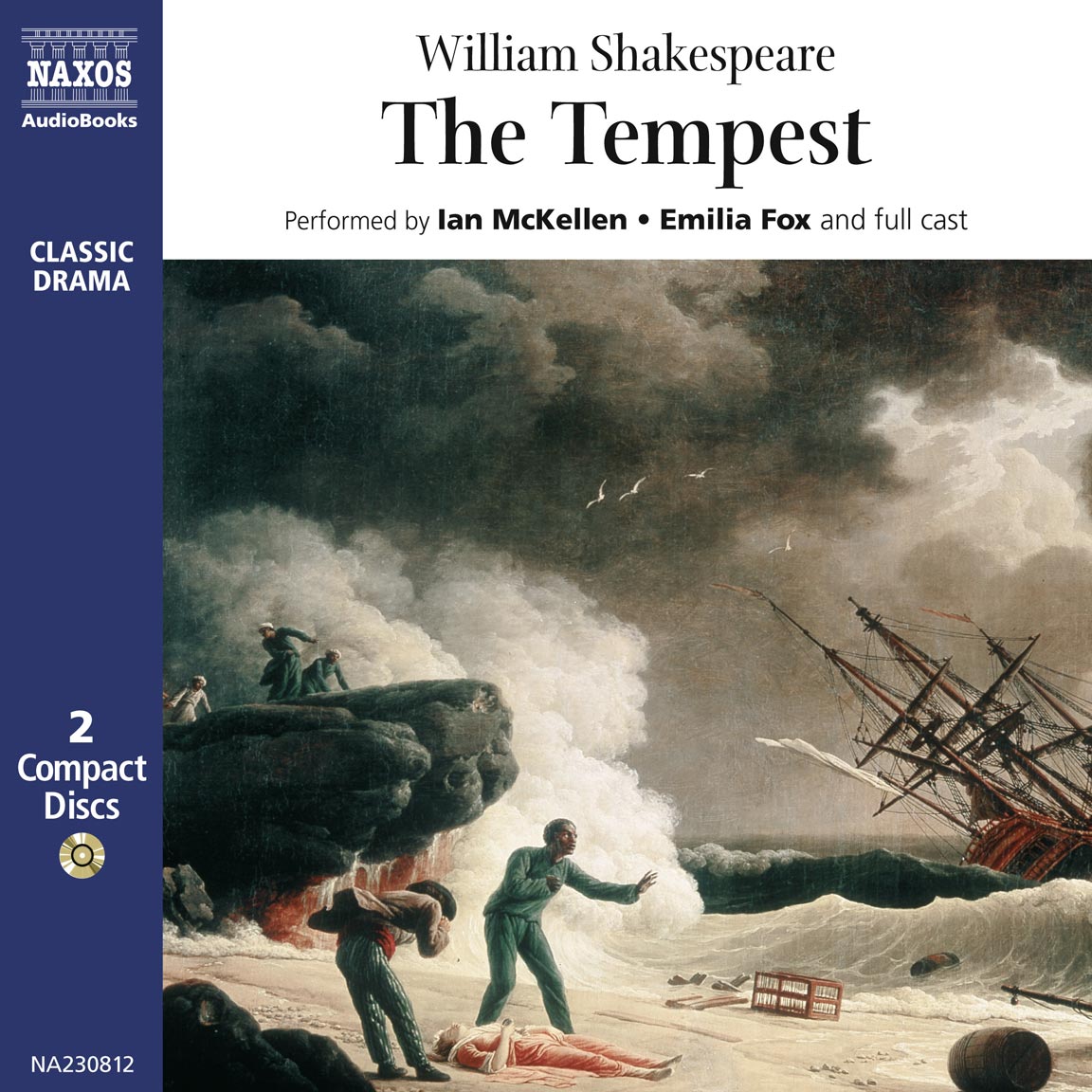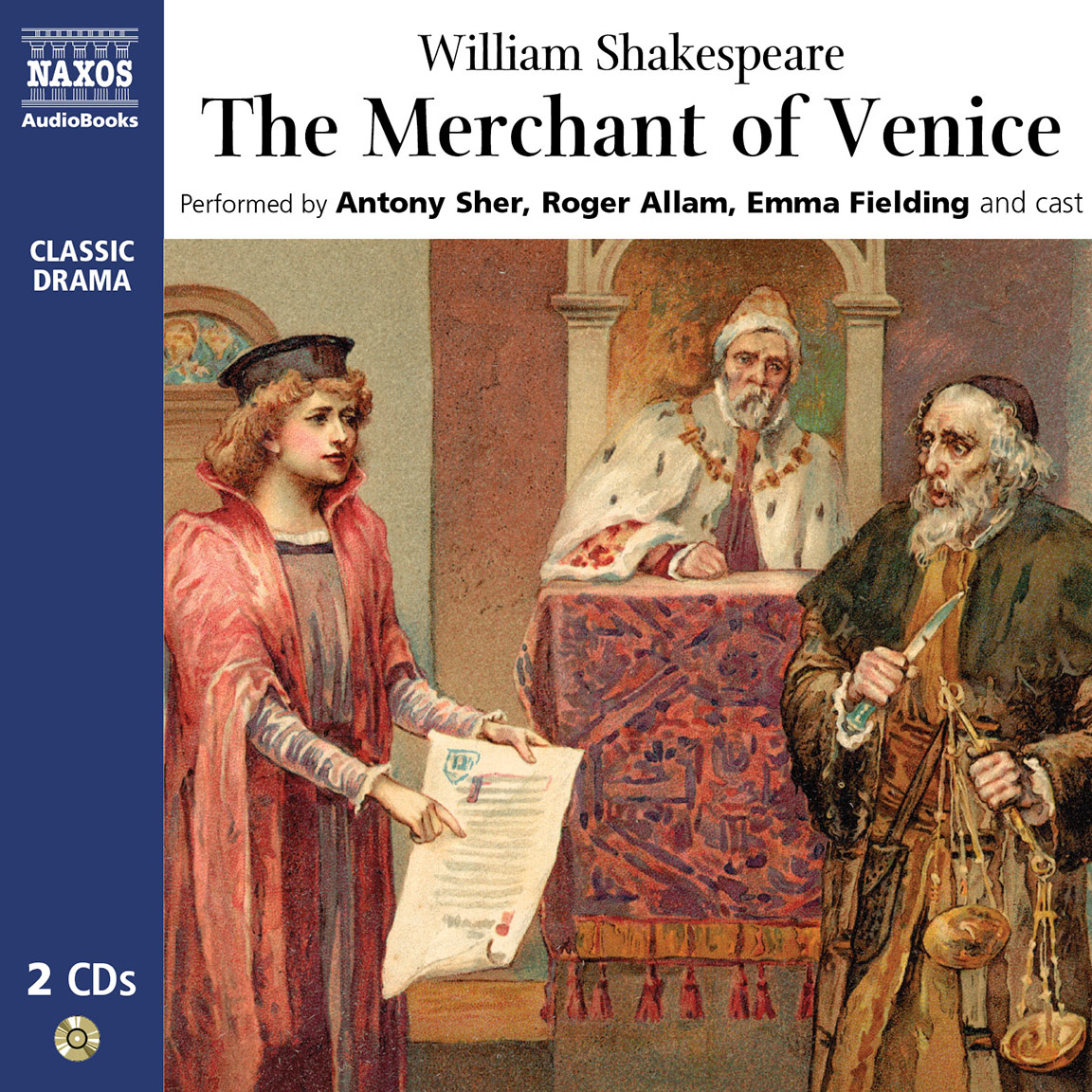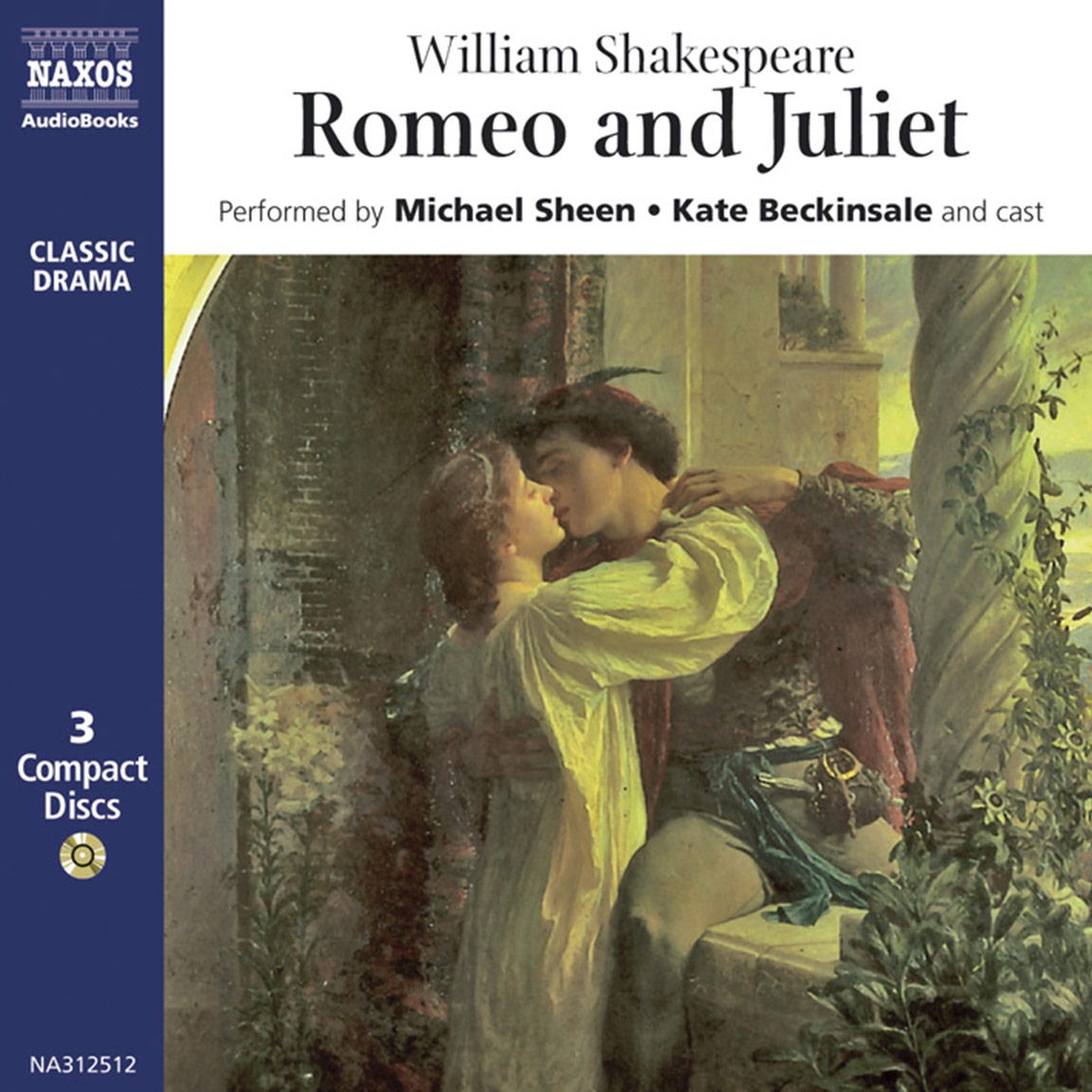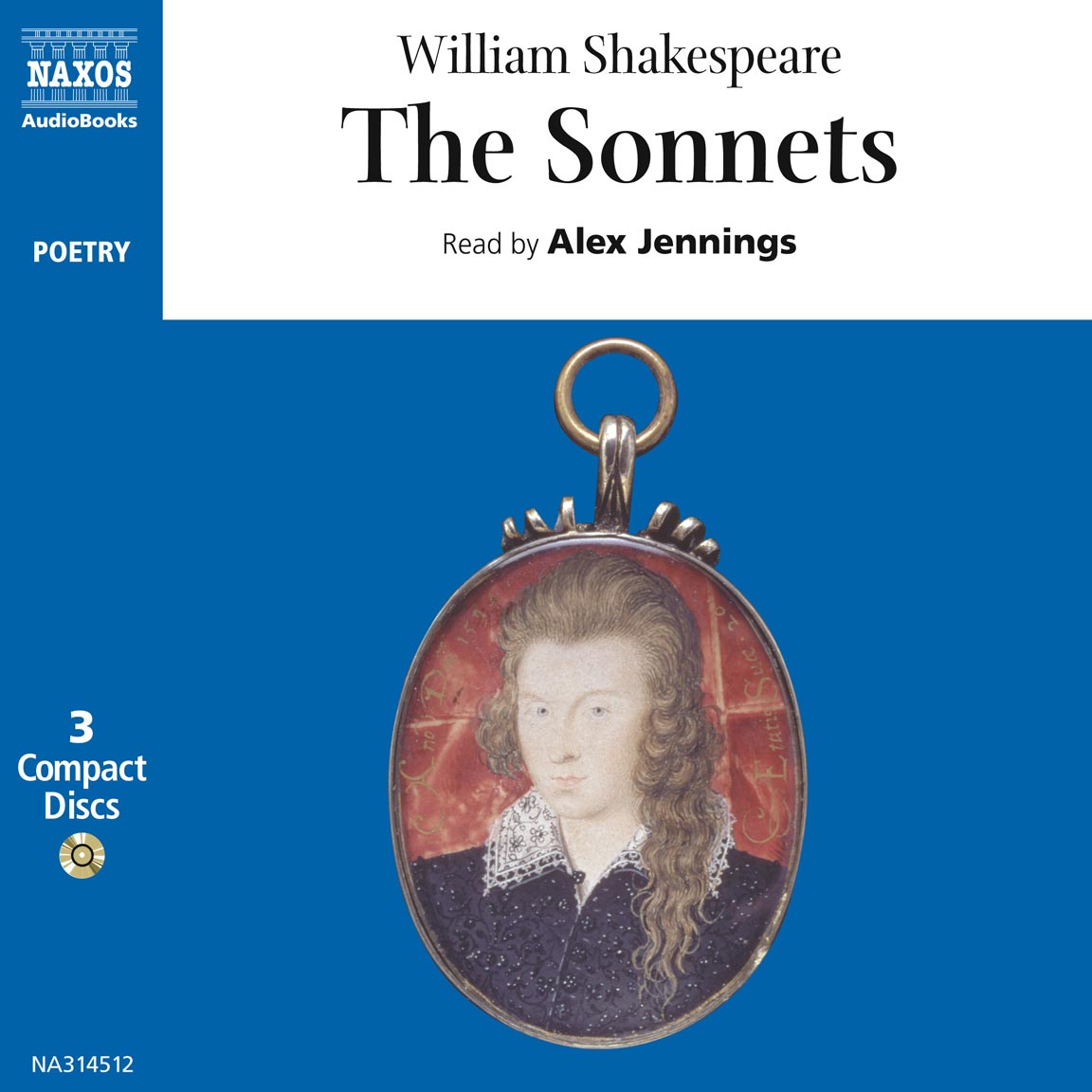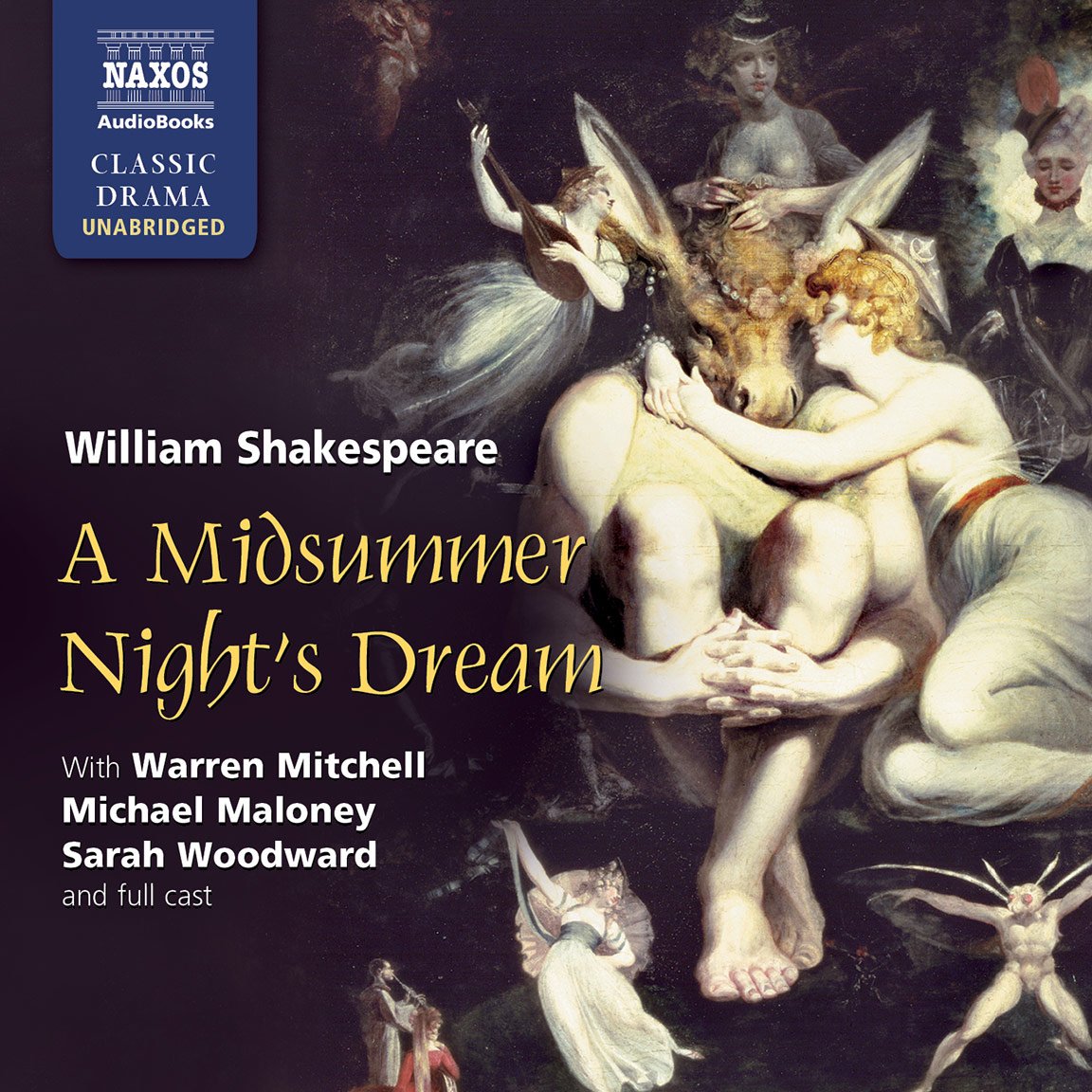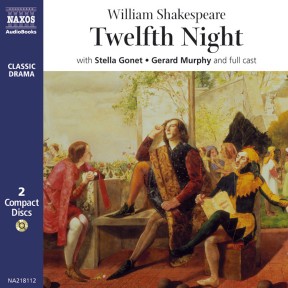
Audio Sample
William Shakespeare
Twelfth Night
Directed by David Timson
Performed by Stella Gonet, Gerard Murphy, Jonathan Keeble, Daniel Philpott, Nick Fletcher, Peter Yapp, Jane Whittenshaw, Malcolm Sinclair, David Timson, Lucy Whybrow, Christopher Godwin, Brian Parr, Adam Kotz & Benjamin Soames
unabridged
Twelfth Night, first performed around 1600, probably at the court of Queen Elizabeth I, is the tale of separated brother and sister twins – Sebastian and Viola – and their love entanglements. It also offers the rich comic colours of Sir Toby Belch, Malvolio and Sir Andrew Aguecheek. Twelfth Night is part of Naxos AudioBooks’ exciting new series of complete dramatisations of the works of Shakespeare, in conjunction with Cambridge University Press. It uses the New Cambridge Shakespeare text, as used by the Royal Shakespeare Company and educational institutions across the world.
-
Running Time: 2 h 15 m
More product details
Digital ISBN: 978-962-954-695-3 Cat. no.: NA218112 Download size: 33 MB Produced by: Nicolas Soames Directed by: David Timson Edited by: Simon Weir BISAC: DRA010000 Released: January 2000 -
Listen to this title at Audible.com↗Listen to this title at the Naxos Spoken Word Library↗
Due to copyright, this title is not currently available in your region.
You May Also Enjoy
Cast
- Jonathan Keeble
- Orsino
- Daniel Philpott
- Curio/Second Officer
- Nick Fletcher
- Valentine
- Stella Gonet
- Viola
- Peter Yapp
- Servant/Captain/Priest
- Gerard Murphy
- Sir Toby Belch
- Jane Whittenshaw
- Maria
- Malcolm Sinclair
- Sir Andrew Aguecheek
- David Timson
- Feste
- Lucy Whybrow
- Olivia
- Christopher Godwin
- Malvolio
- Brian Parr
- Fabian
- Adam Kotz
- Antonio
- Benjamin Soames
- Sebastian
Booklet Notes
Twelfth Night, nowadays one of Shakespeare’s best-loved and most-admired comedies, was not always so regarded: Samuel Pepys saw the play three times in the 1660s and judged it ‘silly’. Modern audiences, critics and directors seem better attuned to its delicate counterpointing of romance and realism, to its ambivalent ending and to the poetic suggestiveness of Feste’s songs.
Date and Sources
Leslie Hotson’s attractive theory that the play was specifically composed for the visit to court of Don Virginio Orsino, on 6 January 1601, has now been rebutted: Elizabeth Story Donno (New Cambridge Shakespeare) suggests that Shakespeare wrote his comedy ‘sometime after the visit of the duke in January 1601, and that the mood Shakespeare established in the play prompted him to recall both the name of the visitor and the time of his visit’. Twelfth Night is nevertheless undoubtedly festive – almost anarchic at times – in spirit, and thus suits its title’s suggestion of the celebrations marking the last night of the Christmas season. The alternative title – ‘What You Will’ – also implies a mood of careless mischief, even misrule. The season Shakespeare actually intends for the setting of his play is in fact early summer – ‘more matter for a May morning’ – which is appropriate for the prevailing atmosphere of youthful excitement and passion.
Shakespeare’s immediate source for Twelfth Night was probably ‘Apolonius and Silla’ in Barnaby Riche’s Farewell to Military Profession, first published in 1581 and itself based on the Italian play Gl Inganni (1562). Here the themes of disguise, deception and cross-wooing all appear. Shakespeare softens some of the more outrageous or shocking elements, but is perhaps at one with Riche’s claim that his tale is ‘forged onely for delight, neither credible to be beleved, nor hurtfull to be perused’.
For all its darker hints and sharp mockery of folly, the prevailing impression is surely positive
Synopsis of the Play
Act I Scene 1: Orsino, Duke of Illyria, is sick with unrequited love for the beautiful Olivia who is in mourning for her father and brother and has vowed to veil her face, nun-like, for seven years. Scene 2: Viola, shipwrecked in a hostile country and fearing that she has lost her identical twin brother Sebastian in the storm, is helped by the kindly Captain and decides to enter the Duke’s service disguised as a page. Scene 3: Sir Toby Belch, disreputable uncle of Olivia and staying in her house with his foolish friend Sir Andrew Aguecheek, is warned by the serving-gentlewoman Maria to moderate his behaviour. Sir Andrew, it seems, intends to court Olivia. Scene 4: Viola, calling herself Cesario and already a favourite with the Duke, is asked to woo the unyielding Olivia on his behalf. Scene 5: Feste, the Clown (or Fool), has reappeared in Olivia’s household in spite of the disapproval of Malvolio, Olivia’s pompous steward. Viola (Cesario) talks her way into the presence of Olivia, who almost immediately falls hopelessly in love with the attractive page.
Act II Scene 1: Sebastian, followed by the faithful Antonio, mourns the loss of his sister and resolves to go to Orsino’s court. Scene 2: Malvolio delivers a ring to Viola, supposedly dropped by her. Scene 3: Sir Toby, Sir Andrew and Feste, noisily drinking and singing late at night, are interrupted by Malvolio in a vain attempt to restrain their behaviour. Affronted, they seize on a plan of Maria’s to humiliate Malvolio by convincing him through a forged letter that Olivia is in love with him. Scene 4: Viola and Orsino exchange intimate reflections on love; Viola must painfully suppress her own growing infatuation with the duke. Scene 5: Malvolio, walking in the garden, discovers the forged letter, is convinced by it, and decides to follow its instructions: he will ‘be strange, stout, in yellow stockings, and cross-gartered…’, he ‘will smile’.
Act III Scene 1: Viola, paying her second visit on the Duke’s behalf, is forced to reject an outright declaration of love by Olivia. Scene 2: Sir Andrew, jealous of Viola’s effect on Olivia, is incited by Sir Toby to challenge the page to a duel. Scene 3: Antonio has followed Sebastian to the town in spite of the danger to himself: he is wanted by the Illyrians for grievous damage inflicted on them in a sea-fight. Scene 4: Malvolio appears before his lady, grotesquely obeying the injunctions in the letter. He is judged mad by Olivia, and his enemies take advantage of this to have him effectively imprisoned. Mischievously provoked by Sir Toby, the two equally reluctant and incompetent duellists (Aguecheek and Viola) are forced to draw their swords but are prevented from fighting by the sudden appearance ofAntonio, who imagines that he is saving Sebastian’s life. A baffled Viola prompts his bitter resentment by saying (truly) that she does not know him as he is arrested and carried off by Illyrian officers.
Act IV Scene 1: Sebastian and Feste are interrupted by an enraged Sir Andrew who, striking Sebastian in error for Viola/Cesario, is soundly beaten. Further brawling is prevented by the arrival of Olivia who, seeing Sebastian and likewise mistaking him for Cesario, leaves with him. Scene 2: Feste, disguised as a priest, torments Malvolio in prison but finally agrees to provide him with pen and paper so that he may write to Olivia. Scene 3: Sebastian is readily persuaded by Olivia (who mistakes him for Cesario) to enter with her into a ceremony of betrothal.
Act V Scene 1: All are now present at Olivia’s house and the disguises begin to unravel: Antonio, pointing out Viola as the ‘most ungrateful boy’ he has been accompanying for the last three months, prompts the discovery of true identity, but not before both the duke and the Countess Olivia have been briefly enraged by the apparent perfidy of their followers. Orsino then belatedly realises what has been hinted to the audience before – namely, that he in fact loves Viola/Cesario rather than Olivia. All appears to end happily, if we discount the rejected Sir Andrew – even Sir Toby and Maria are now married – but the celebrations are marred by the furious departure of Malvolio who, now released, cannot forgive his tormentors and vows ‘to be revenged on the whole pack of [them]’.
The Play
The play revolves – humorously, affectionately, sometimes painfully – around the follies of youth as it pursues love and happiness in a world which is half-fantasy, half-real. Disguise and deception may paradoxically lead to truth, as in the infatuated Orsino’s eventual discovery that he really loves Viola/Cesario, not Olivia, but they are equally capable of producing pain and humiliation: Malvolio, ‘sick of self-love’, is tricked by his own vanity into believing that his lady is besotted with him, and must suffer for this foolish presumption. Sir Andrew Aguecheek, the butt of everyone’s humour, was ‘adored once’; and what are we to make of the enigmatic, melancholic Feste? Some directors like to develop the faint hints that he nurses a hopeless passion for Olivia (who certainly seems dependent on him), and his songs lend a distinctively plangent note to the play, with their stress on transience and death – ‘youth’s a stuff will not endure’ – ‘for the rain it raineth every day’. His often sardonic, reductive commentary on the behaviour of those around him is, however, challenged by Viola, who seems to promise a maturity and constancy not found in others – her poignant evocation of one who ‘never told her love’ and ‘sat like Patience on a monument,/ Smiling at grief’ counters the flightiness and self-indulgence around her. Yet we should beware of making something too serious and solemn out of this most captivating play – for all its darker hints and sharp mockery of folly, the prevailing impression is surely positive: the puritanical world of Malvolio, where there ‘shall be no more cakes and ale’, is rejected, as is the distorted world of the infatuated lover Orsino who, at the start of the play, has not yet learned to understand his own heart, and would prefer to cultivate his emotional suffering – ‘give me excess of it’.
Notes by Perry Keenlyside
Twelfth Night as a microcosm of Elizabethan England
Although the play takes place in the fantastical world of Illyria, it seems to be rooted in late Elizabethan England; and it is not too far fetched to believe Shakespeare is examining and satirically portraying the state of the nation c.1600. We are shown, in Olivia, a critical portrait of Elizabeth I, a single lady, mistress of her house, though not her emotions, rejecting all suitors. Orsino’s obsessive ardour for Olivia puts in mind the headstrong Earl of Essex, whose unsuccessful and fatal rebellion, an attempt to upset the balance of the realm, in 1601, was a recent memory. Shakespeare seems to be implying that power without responsibility leads to anarchy: the kind of misrule exemplified by Sir Toby and his followers, who live only for pleasure. By this time Elizabeth I was in her 60s, and an elaborate fantasy was being played out at court where she was glorified by poets as Gloriana the Virgin Queen, whilst she hid the ravages of time behind inches of make- up. A Court so out of touch with reality leaves the way open for a new class to take up the reins of authority. Malvolio represents the worst aspects of the emerging middle class; materialistic, ambitious, philistine, a figure of fun in the early 1600s, but Shakespeare in creating this ‘kind of a Puritan’ who will be ‘revenged on the whole pack of [them]’ seems to have a foreboding of the Civil War of the 1640s when the old order and the new fought it out for England’s future.
David Timson
